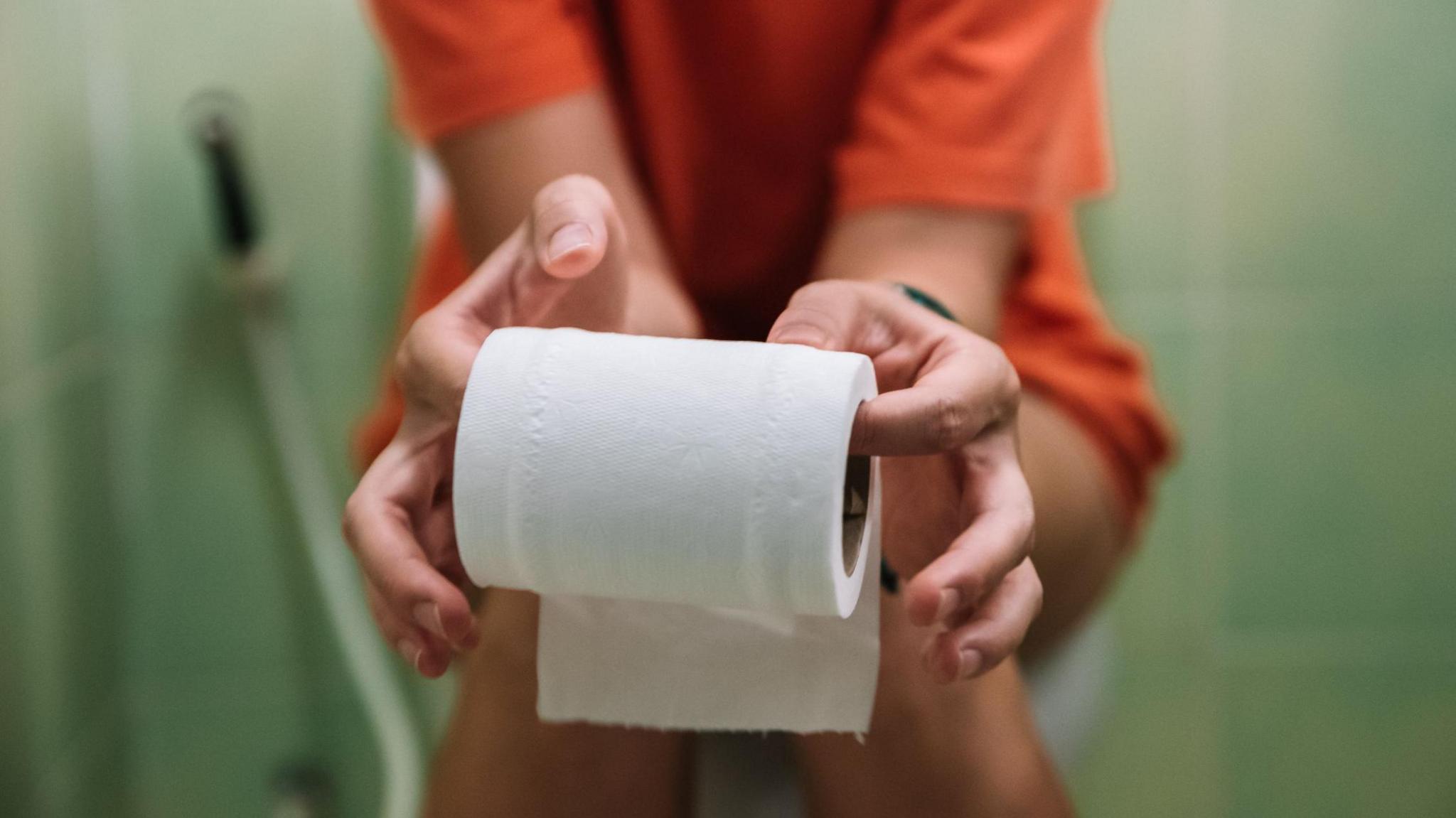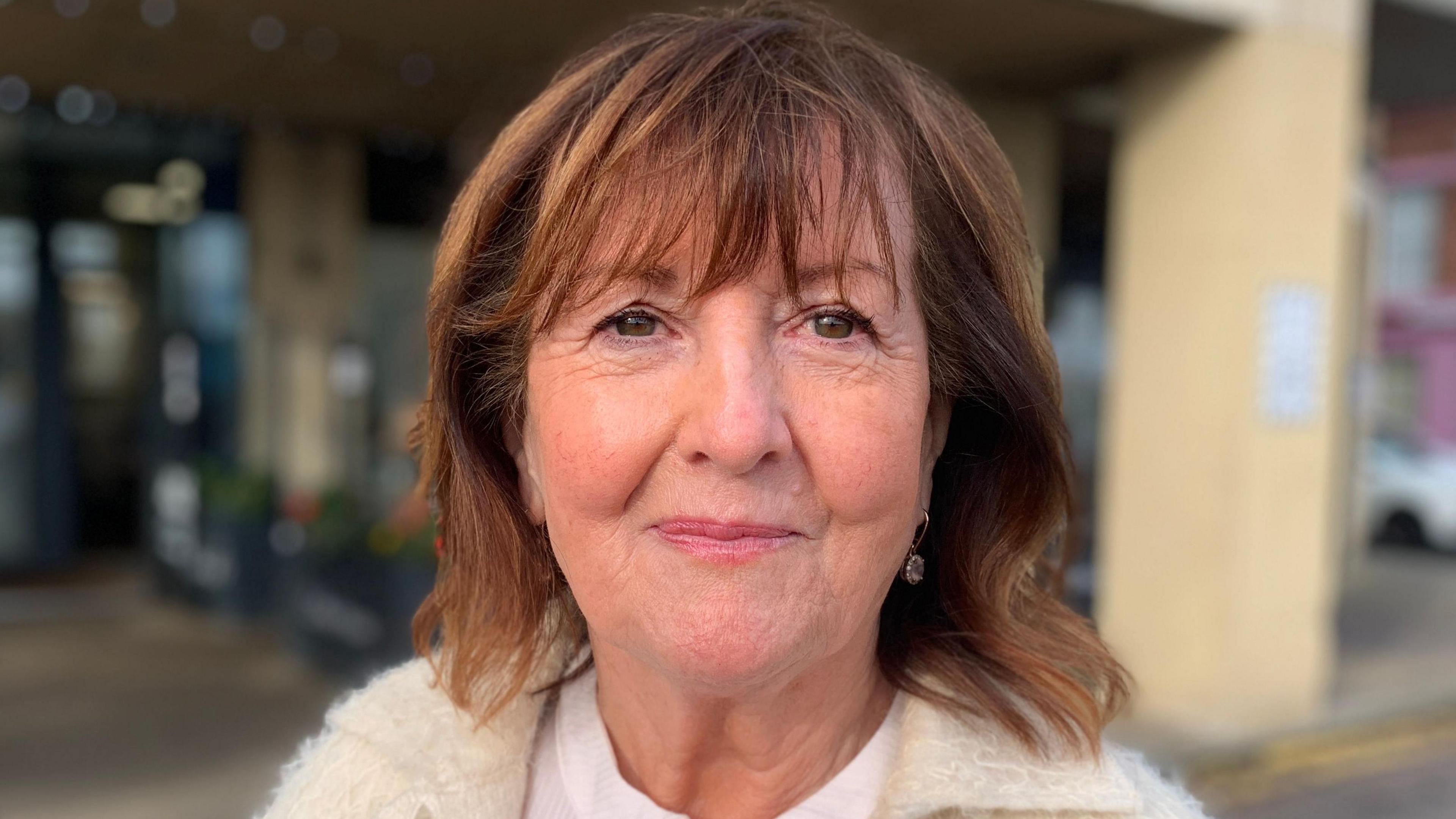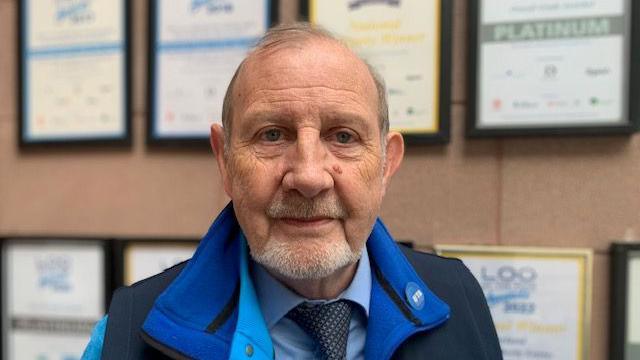Why is a council paying businesses to let the public use their toilets?

Derry City and Strabane District Council offers money to businesses involved in the toilet scheme
- Published
When you've got to go, you've got to go - but finding increasingly rare public toilets in a town or city centre can be a serious challenge in an already stressful situation.
That's why one Northern Ireland council is paying businesses to open their toilets to the wider public - but is it pennies well spent or money down the drain?
Derry City and Strabane District Council's Community Toilet Scheme sees it offering local cafes, restaurants and other businesses £300 to £800 per year to allow members of the public to use their facilities for free.
It's the only scheme of its kind in Northern Ireland, a place that is increasingly lacking in public loos, with more than 15 lost in the last decade and cash-strapped councils under no legal obligation to provide them.
What is the public toilet scheme about?
Derry City and Strabane District Council operates 12 public toilets but said with no plans to build new ones, this scheme gives them a cost-effective way of offering more facilities.
The scheme, which was first brought in for a time in 2018 and then re-introduced in 2023, is the only one of its kind in Northern Ireland but has been used by councils in England.
"I think it's the best way forward," said Aisling Hutton, a Sinn Féin councillor and chair of the council's health and communities committee.
She said the scheme, despite seeing the council pay out money to businesses, was more cost effective than building new public toilets as the toilets will be cleaned and maintained by the businesses involved.
Ms Hutton also said the scheme gave people, especially older people, those with disabilities or those with young children, the chance to plan their route so that they won't be caught short when out and about.
It also gave businesses an opportunity to increase their footfall and would complement the council's age-friendly strategy, she added.
"It will encourage older people to leave the house and be independent on their walk down the quay or around the city centre, knowing that they have a facility that they can enter to use the toilet without having to purchase any of the products."

Derry and Strabane District Council Community Toilet Scheme participant Patricia Mahon
Patricia Mahon, who owns a coffee shop on the city's quay, is one of the business owners taking part in the scheme.
"If somebody has to go to the toilet then they need to use the toilet," she said.
"Children, old people and disabled people, it's very important to have the door open for them."
She encouraged more businesses to take part, adding that the council's "£300 per year goes towards toilet rolls and maintenance of the toilet".
"It doesn't really go far, but it's something," she said.
The scheme pays local businesses, such as shops and cafes, to let the public use their toilets for free.
But just how much do the public know about the scheme?
Brian and Fidelis McLaughlin said they had both "never heard tell of it" but were "delighted" to learn of its existence.
They said they would often use Ms Mahon's cafe toilet during their walk along the quay and felt guilty about it.

Brian and Fidelis McLaughlin said they are delighted to learn about the community toilet scheme
Paul Doherty also said he knew "very little" about the scheme, adding that he "couldn't tell you where there's any public toilets".
Shops and supermarkets are your first thought, he added.
Why do public toilets matter?
Raymond Martin, managing director of the British Toilet Association, has been working with councils across the UK for over two decades.
He welcomes more toilets being made available via community toilet schemes, adding that "we need more toilets in our public places".
However, while acknowledging the cost of public toilets to councils, he said they should not be a replacement for traditional council-owned toilets.
"A community toilet scheme is an integral part of what we're trying to achieve, but it's not the be-all and end-all answer. The council has to have provision in its own right," he said.

According to Mr Martin, who is based in Bangor, County Down, the average public toilet can cost local authorities possibly "£10,000 to £15,000 per year as a minimum".
However, he said it's a price worth paying, adding that businesses cannot be expected to cater for the same numbers that a council public toilet can.
"You need toilets with multiple cubicles, multiple urinals, and at least two, if not three, accessible units for those people with disabilities and accessibility needs.
"We need more toilets, we need safer toilets and clean toilets."
He is now leading a campaign to encourage the government to introduce UK-wide legislation making public toilets a legal requirement.
What do the numbers on public toilets say?
BBC News NI asked the 11 councils in Northern Ireland for details on the amount of public toilets they have in their area.
The figures show that Northern Ireland has approximately 282 public toilets for an estimated population of 1.93 million.
Causeway Coast and Glens Borough Council had the highest amount with 47.
Belfast City Council and Derry City and Strabane District Council said they have 12 public toilets, with both highlighting toilets available for use in other council facilities.
Mid-Ulster reported the highest number of permanent closures - five - since 2015, with no new toilets being built.